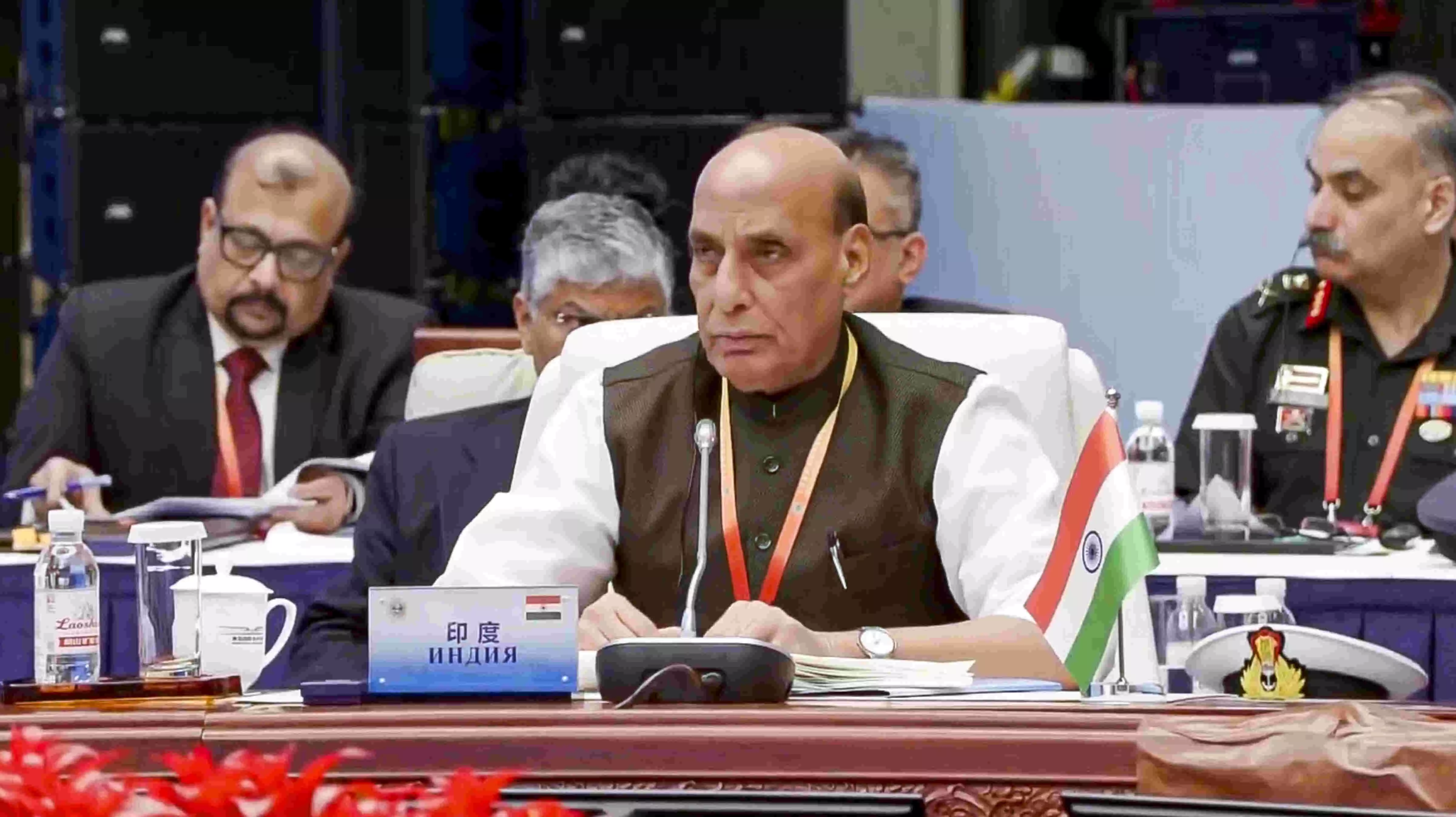An Imperative Red Line

The global order has entered into an era where multilateral forums are increasingly being used for diplomatic tightrope-walking rather than maintaining moral clarity. In these times, India’s refusal to sign the Shanghai Cooperation Organisation’s (SCO) joint statement has come as a whiff of fresh air. India’s posturing at the SCO was bold and, more importantly, necessary. India’s Defence Minister’s decision to withhold the endorsement of the draft document—as it skipped the mention of the heinous terror attack in Pahalgam while erroneously choosing to highlight India’s supposed hand in Balochistan unrest—is a slap on the face of rogue elements who think they can pass with their brutal manoeuvrings. The message out there to the world is very clear—India will not allow terror to be sanitised or selectively acknowledged in the name of consensus.
It needs no recall that on April 22, 26 innocent lives, including that of a Nepali national, were claimed in the Pahalgam terror attack. Victims were shot after being profiled based on religious identity. The Resistance Front, a proxy of the UN-designated Lashkar-e-Taiba, claimed responsibility. Yet, the joint SCO statement—drafted under China’s current chairmanship—conspicuously omitted this massacre. Instead, it cited the hijacking of the Jaffar Express in Balochistan, implicitly pointing fingers at India by parroting Pakistan’s long-standing, unsubstantiated narrative of Indian interference in the region. This glaring asymmetry is deliberate and mischievous. China and Pakistan—bound by their “iron brotherhood”—have time and again used international platforms to further each other’s strategic narratives.
As far as internal fissures in Pakistan are concerned, India has always rejected accusations about fomenting unrest in Balochistan. These blames are indeed baseless deflections aimed at obscuring Pakistan’s own role as a state sponsor of terror and its failure to keep its internal divisions intact. The refusal to sign the SCO document is a firm and just extension of India’s belief that terror—especially cross-border terrorism—cannot be compartmentalised or tolerated under the guise of diplomatic courtesy. The Union Defence minister could not have been more articulate as he asserted, “Peace and prosperity cannot co-exist with terrorism and proliferation of Weapons of Mass Destruction in the hands of non-state actors.” It is very crucial to note here that India’s position aligns with a growing global consensus that terrorism must be addressed unequivocally. And one should not mistake these as mere words; India has already walked the talk. Operation Sindoor, launched in response to the Pahalgam attack, demonstrated India’s commitment to dismantling cross-border terror infrastructure. India’s assertion that “epicentres of terrorism are no longer safe” is both a warning and a principle of deterrence.
If the SCO truly intends to foster regional security, as its charter claims, it must reject selective silence. The organisation’s credibility hinges on its willingness to speak plainly about all acts of terrorism, regardless of the perpetrators or victims. The larger context behind India’s refusal also cannot be ignored. It has come at a time when the global order is increasingly unstable—plagued by transnational terrorism, hybrid warfare, cyberattacks, and the weaponisation of trade and technology. In such times, multilateralism must be rooted in shared moral clarity, and not compromise. There is a pressing need for a “reformed multilateralism” that is rooted in the fact that no single country can tackle global challenges alone, but cooperation must not come at the cost of moral blindness. The SCO summit in Qingdao ended without a joint communique. That, too, is a statement. When consensus excludes truth, silence is preferable. India has stood firm—not just for itself, but for all victims of terrorism who risk becoming invisible in the shadow of geopolitical gamesmanship. By refusing to sign a flawed document, India has drawn a red line that others would do well to heed—if terror is negotiable, peace is impossible.



